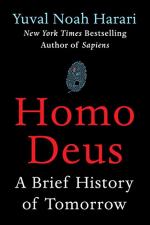
|
| Name: _________________________ | Period: ___________________ |
This test consists of 15 multiple choice questions and 5 short answer questions.
Multiple Choice Questions
1. To what modern concept are the living-god pharaohs compared?
(a) Personal brands.
(b) Agricultural conglomerates.
(c) Tax collecting.
(d) Monotheism.
2. How much of our bodily activities are accomplished without conscious feelings?
(a) 36%.
(b) 99%.
(c) 89%.
(d) 75%.
3. Who developed the theory of evolution?
(a) Charles Darwin.
(b) Albert Einstein.
(c) Sigmund Freud.
(d) Harry Harlow.
4. Why do scientists deny the existence of God?
(a) The idea of God is old-fashioned.
(b) There is no empirical data to prove His existence.
(c) Science has better answers to difficult questions.
(d) They are not religious.
5. What British explorer first landed on the island of Hawaii?
(a) Francisco de Eguia.
(b) Galileo Galilei.
(c) Christopher Columbus.
(d) Captain James Cook.
6. Why is the theory of relativity accepted but the theory of evolution is rejected?
(a) The theory of evolution is about animals.
(b) The theory of relativity is a scientific breakthrough.
(c) The theory of relativity does not change our religious beliefs.
(d) The theory of evolution cannot be proven.
7. What percentage of Americans believe God created humans in their current form?
(a) 12%.
(b) 46%.
(c) 15%.
(d) 35%.
8. Religion is a deal, whereas spirituality is ___________.
(a) An unknown.
(b) A personal experience.
(c) Undefined.
(d) A journey.
9. What Romanian dictator was stunned by someone who booed him during his speech?
(a) Nicolae Ceausescu.
(b) Ion Iliescu.
(c) Tzar Nicholas.
(d) Rene Descartes.
10. What plague wiped out one-quarter of the population of Eurasia in the 1330s?
(a) The Black Death.
(b) Tuberculosis Infection.
(c) The Red Death.
(d) The Smallpox Epidemic.
11. Eating too little used to kill many people. What kills many people today?
(a) Lack of water.
(b) Not eating the right things.
(c) Not enough exercise.
(d) Eating too much.
12. In some civilizations, an extension of exploiting animals was followed by treating certain classes of people in what way?
(a) As if they were property.
(b) As if they would live forever.
(c) As if they should be raised in cages.
(d) As if they were less important than animals.
13. Which country was the first to recognize animals as sentient beings?
(a) Austrailia.
(b) Canada.
(c) Great Britian.
(d) New Zealand.
14. What does Harari say humans must overcome to be like gods?
(a) Epidemics.
(b) Poverty.
(c) Death.
(d) Malnutrition.
15. Harari states that what is written on a form is far more important than what?
(a) The government.
(b) What the people want.
(c) What the bureaucrats say.
(d) The truth.
Short Answer Questions
1. What was Clever Hans the horse able to do?
2. During the Agricultural Revolution humans silenced animals and plants. During the Scientific Revolution humans silenced what or whom?
3. Chekhov said if there was a gun in Act One, what would happen in Act Three?
4. Without some religion, what would it be impossible to maintain?
5. As a result of the Agricultural Revolution, humans insured the survival and reproduction of domesticated animals while ignoring what?
|
This section contains 486 words (approx. 2 pages at 300 words per page) |

|




